The best Warhammer 40,000 novels
There is no time for peace. No respite, no forgiveness. There is only READING THE BEST 40K BOOKS.
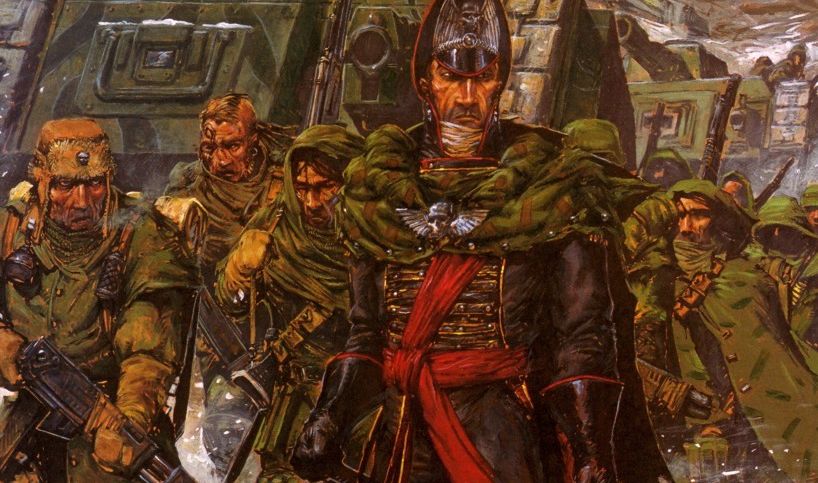
Douglas Adams used to add the word "hyper" to things to make them sound more sci-fi. The authors of the best Warhammer 40,000 books do the same thing, only their prefix of choice is "mega". Orks pilot mega bommers and mega gargants. The Imperium's agri-worlds are threshed by mega-harvesters, and its industrial worlds powered by megafurnaces. Spider-like aliens? They are called, delightfully, "megarachnids".
It's the perfect word for 40K, a science-fantasy setting based on taking everything too far, then pushing it further. Not content with extrapolating the future to a reasonable distance, it imagines 38 or 39 millennia ahead (individual books hop around the timeline) to a galaxy that's full to bursting with evil empires who are all at war with each other and frequently themselves.
They're pretty extra when it comes to gore and dismemberment as well, the writers competing to find new ways to describe violence. Some of the books are clever and twisty, but they always find room for something to be painted with arterial spray, or a head to pop like a specific over-ripe fruit or vegetable. In one turn of phrase that will stay with me till I die, someone's intestines flopped out like gray snakes. You don't get that anywhere else.
The other thing 40K books push beyond reason is their quantity. There are so many it's hard for new readers to find a way in, and easy for regular readers to miss books they'd enjoy in the megaflood. Here are the best 40K books.
Best 40K books for beginners
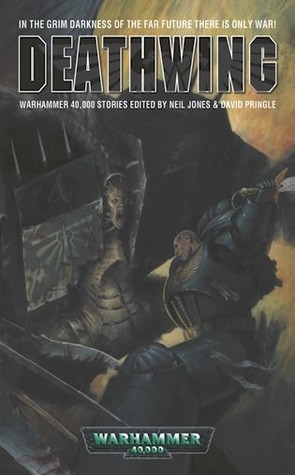
If you want to dip a toe in the dark future, Deathwing is a short-story anthology that gives a solid overview of the setting's breadth. Devil's Marauders by Bill King is about a company of Imperial Guard racing to escape their own bombardment across a planet where trees are so big their branches form highways. Charles Stross writes about a judge and an assassin dispatched to bring an entire world back under Imperial control, while Storm Constantine writes about psykers falling in love while their ship travels through the alternate reality horrorshow of the Warp. Heck, there's even a couple of stories about space marines.
For a standalone novel, read Lord of the Night. It's about a traitor marine searching a hive city for a relic, which he does by terrorizing its inhabitants from the shadows while talking like a Frank Miller protagonist. As he murders his way through the city's gangers and underclass, an apprentice inquisitor tries to convince her superiors that he exists, and that they should actually care there's an evil Batman out there ripping apart disposable citizens.
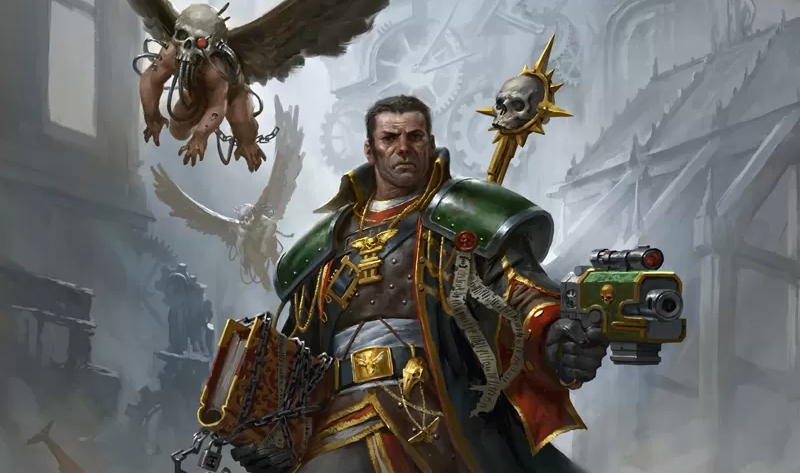
Best 40K series
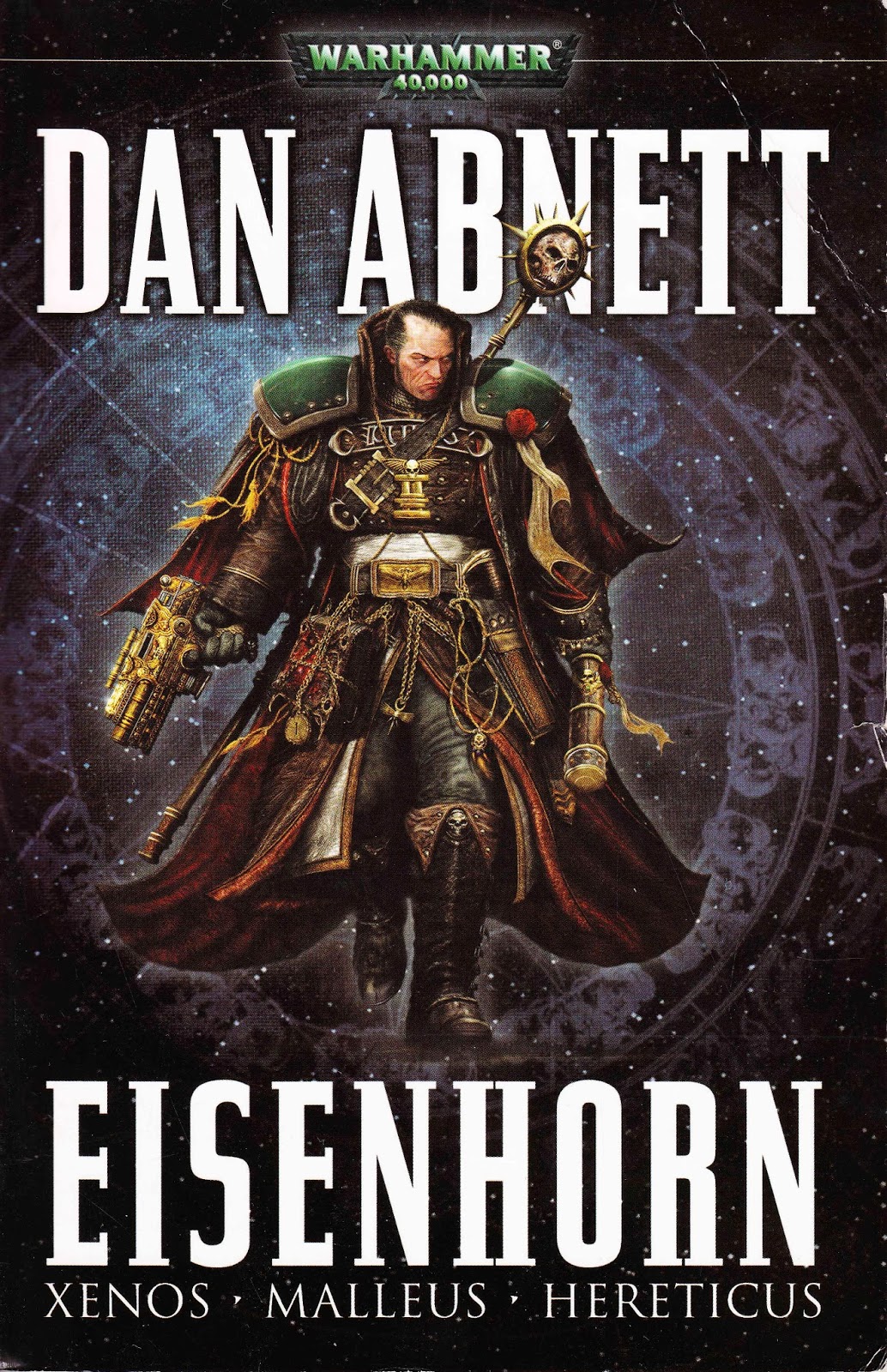
The Eisenhorn books turn 40K into hardboiled fiction, with Inquisitor Eisenhorn as a Raymond Chandler detective narrating in first-person. His investigations into Chaos frequently lead to conflict with the machinery of the Imperium he's supposed to protect, which plays well with the genre's cynical view of authority. Eisenhorn's written by Dan Abnett, one of the better 40K writers but one with a weakness—endings that feel rushed. The third book in the Eisenhorn trilogy suffers from this, but waiting on the other side is a sequel trilogy called Ravenor. Ravenor jumps genre and protagonist, following an inquisitor who works with a team of badass specialists. Suddenly it's more like the X-Men than The Big Sleep, a change that revitalizes the series and makes it worth sticking with.
Keep up to date with the most important stories and the best deals, as picked by the PC Gamer team.
For classic military sf, Gaunt's Ghosts is the series you want. Colonel-Commissar Ibram Gaunt is an unusually compassionate officer, dedicated to keeping alive a regiment who are the only survivors of a dead world. Unfortunately for them, the war engine of the Imperium is full of glory hounds and bastards happy to throw away thousands of lives to move a trench forward half a mile. While the enemies faced by the Ghosts are terrible, Gaunt struggles just as much against the orders he's given.
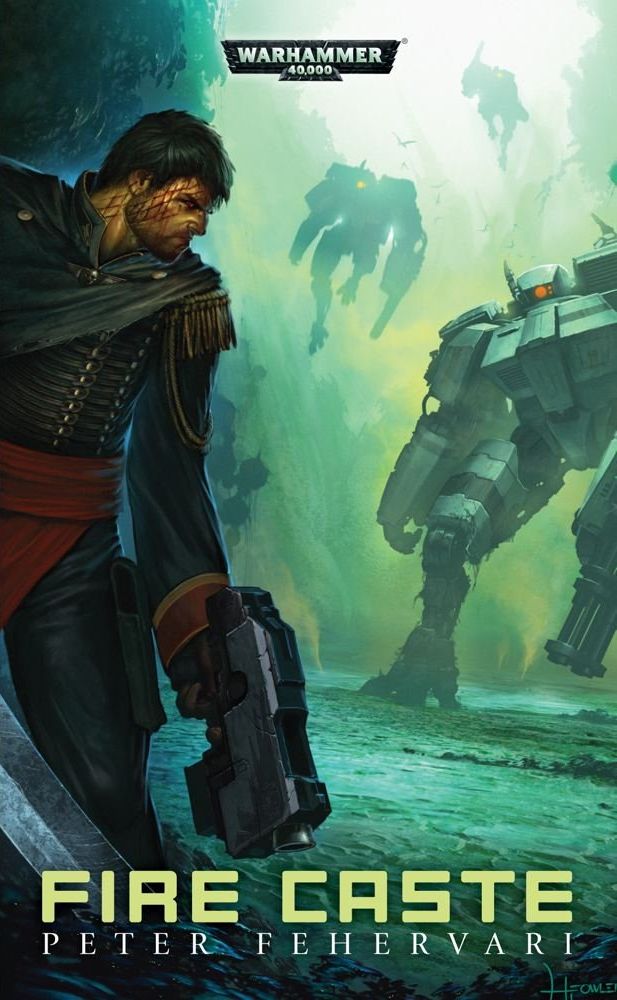
Then there's the Dark Coil, which isn't a formal series, but a name for Peter Fehervari's 40K stories, connected by an esoteric tangle of recurring characters, places, and themes. Start with Fire Caste, which follows an Imperial Guard regiment called the Arkan Confederates who walked straight out of a western and have names like "Kletus Modine". They join an endless war against the tau on a planet covered in fungal jungle and a maze of rivers called the Dolorosa Coil. It's a "war is hell" story, Apocalypse Now if it was about cowboys versus aliens who wear anime battlesuits. The short story Vanguard is its epilogue, and from there anything with the name Peter Fehervari on it leads further into the Coil.
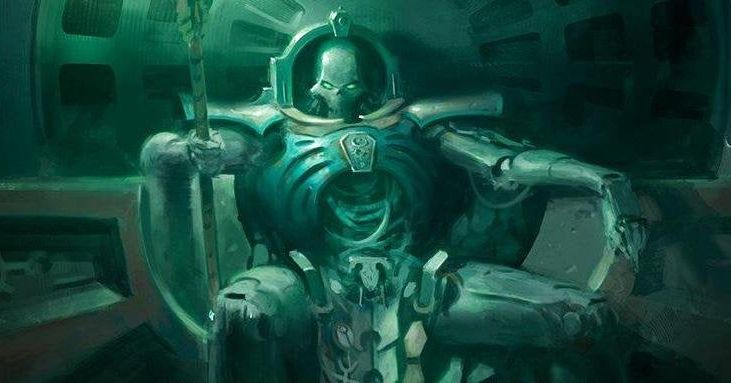
Best standalone 40K novels
For a non-human perspective, try The Infinite and the Divine. It's about the necrons, pseudo-Egyptian cybermen who were tricked out of their souls and into immortal machine bodies, and have been mad about it for millennia. Trazyn the Infinite is so obsessed with the past he fills a museum with warriors in stasis like life-sized collections of Warhammer miniatures, while his rival Orikan the Divine can see the future and even alter it, which he uses for reasons as petty as jury-tampering. One of the funnier 40K books, it extrapolates the idea of beings who essentially cannot die to imagine an entire species filling infinity with pointless one-upmanship—as well as plays that take literal decades to perform and nobody enjoys.
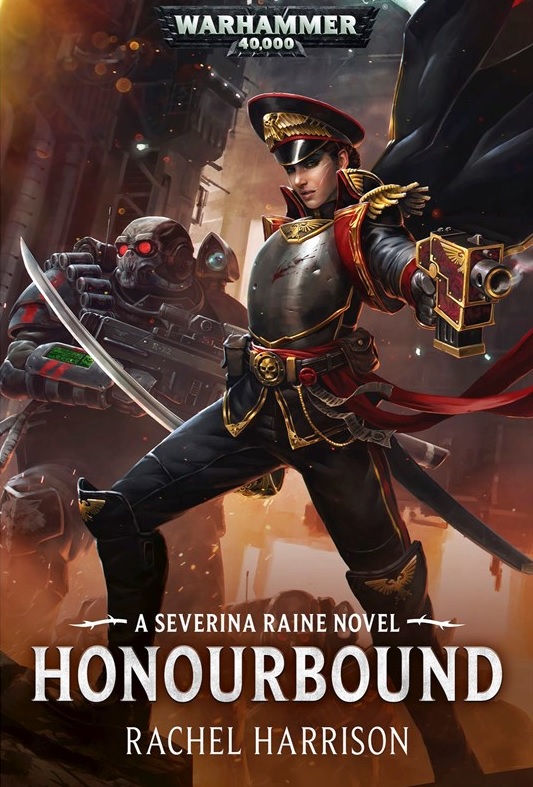
Honourbound is another book about a commissar, but where Ibram Gaunt is atypical, one of the first things Severina Raine does in Honourbound is execute one of her own soldiers for cowardice. Which is exactly what commissars are meant to do. And yet, Raine comes off sympathetic, as do the soldiers who serve under her—even though one's an addict who does some terrible things and the others are so superstitious they shun the psyker attached to their squad and call her a "witch". Written in present-tense, Honourbound constantly pauses to dive into the thoughts of its ensemble cast, peppering the battles and intrigue with psychological insight that makes it as much character study as war story.
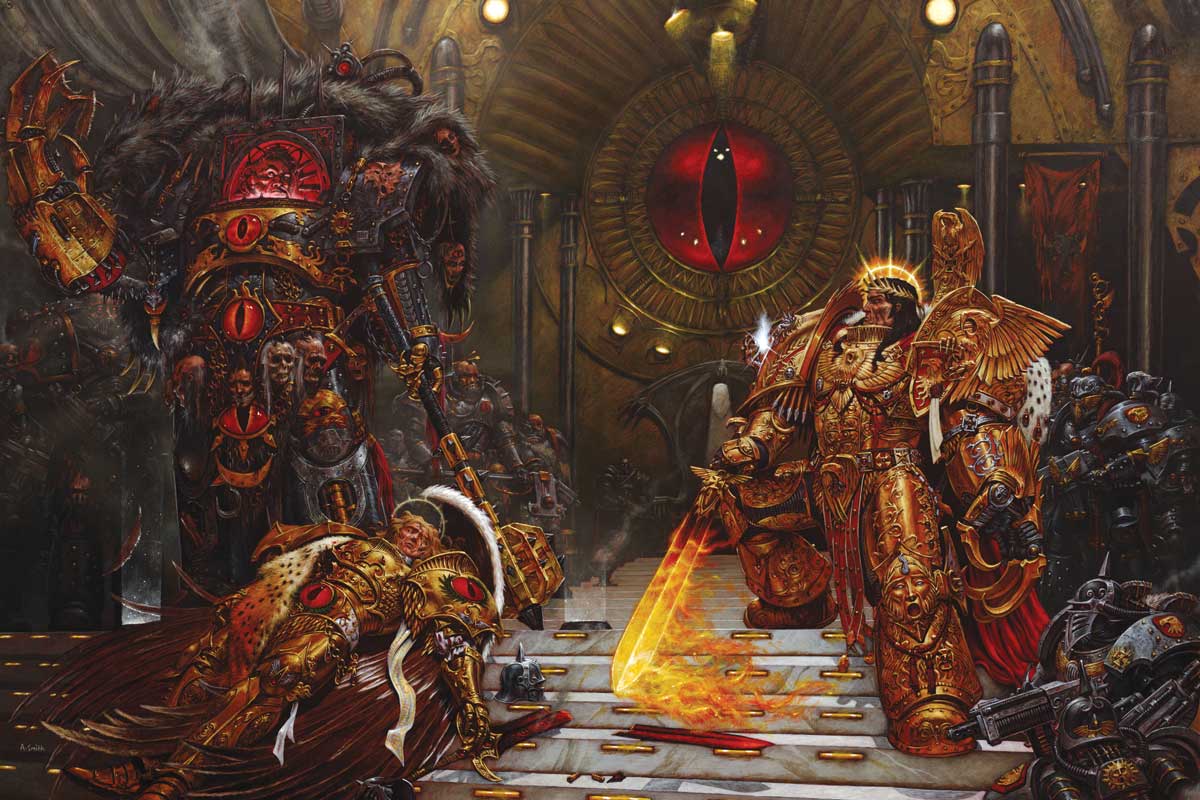
Best Horus Heresy books
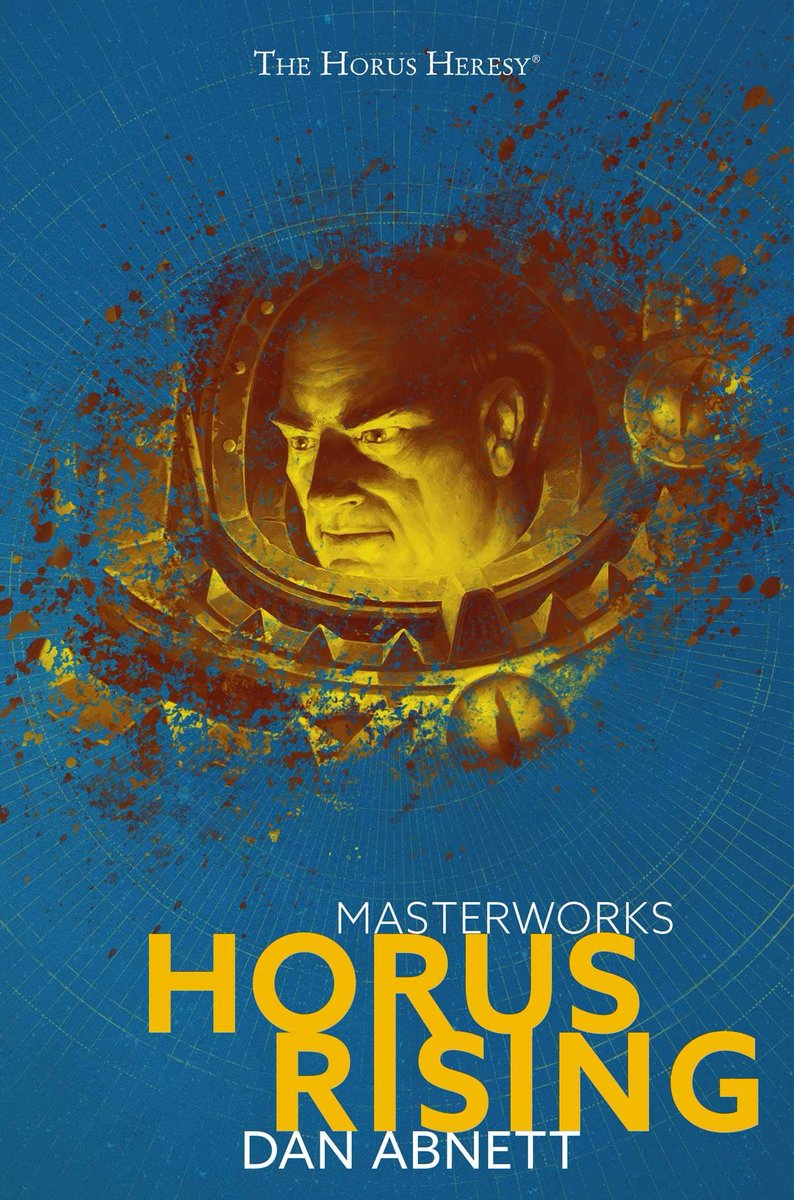
The Horus Heresy line jumps back 10,000 years to a formative point in the setting's history. Like most prequels they're better experienced after the stories they're set before, full of foreshadowing that pays off if you know what's coming. The first three are the essential ones: Horus Rising, False Gods, and Galaxy in Flames. In these, the perspective is split between superhuman space marines and ordinary remembrancers—artists, photographers, poets, and journalists brought along to record their Great Crusade for posterity, who instead witness its fall into corruption and betrayal. It's a look at the Imperium before religious dogma dominated it, imperfect but far from "the cruelest and most bloody regime imaginable" it becomes.
Unfortunately the Horus Heresy books were a victim of their own success, selling well enough that initially modest plans were expanded into a line that numbers over 50 books, full of padding and stories that bounce back in the timeline to fill gaps no one cares about. One exception is Legion, a spy novel that uses yet another of 40K's grand pointless wars as a backdrop. Best of the books that rewind the timeline is The First Heretic, which goes back to the roots of the heresy among the Word Bearers, and nicely sets up probably the best Horus Heresy book of all, Know No Fear. It turns an attack on an Ultramarines homeworld into a disaster movie in present-tense, and actually makes the most boring chapter of marines interesting for once.
Beyond those, the best way to approach the later Heresy books is to cherry-pick ones that focus on factions or characters you're already interested in and skip the rest. If you like the White Scars read Scars, if you like the Space Wolves read Prospero Burns, and if you like giant robots read Mechanicum.
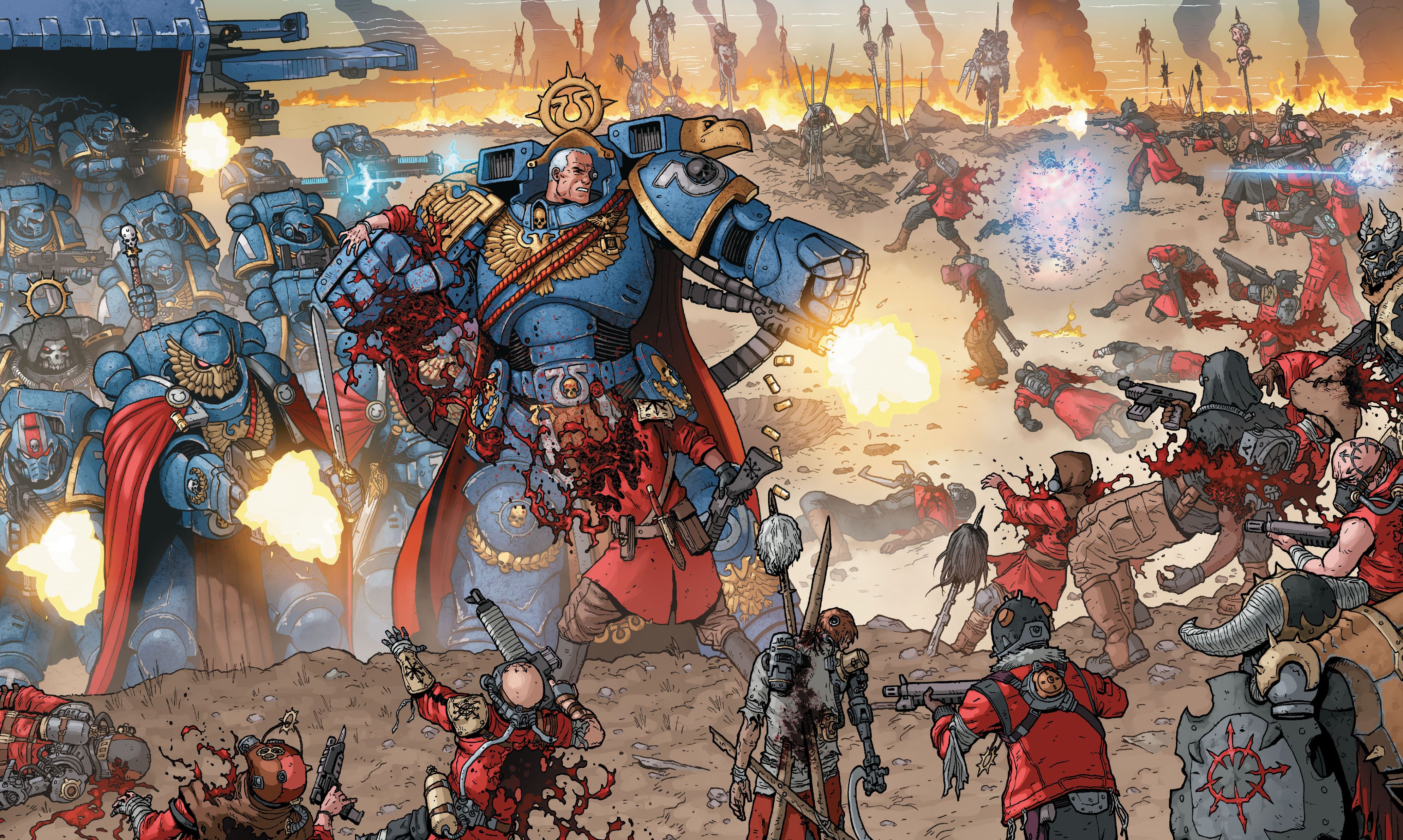
Best 40K comics
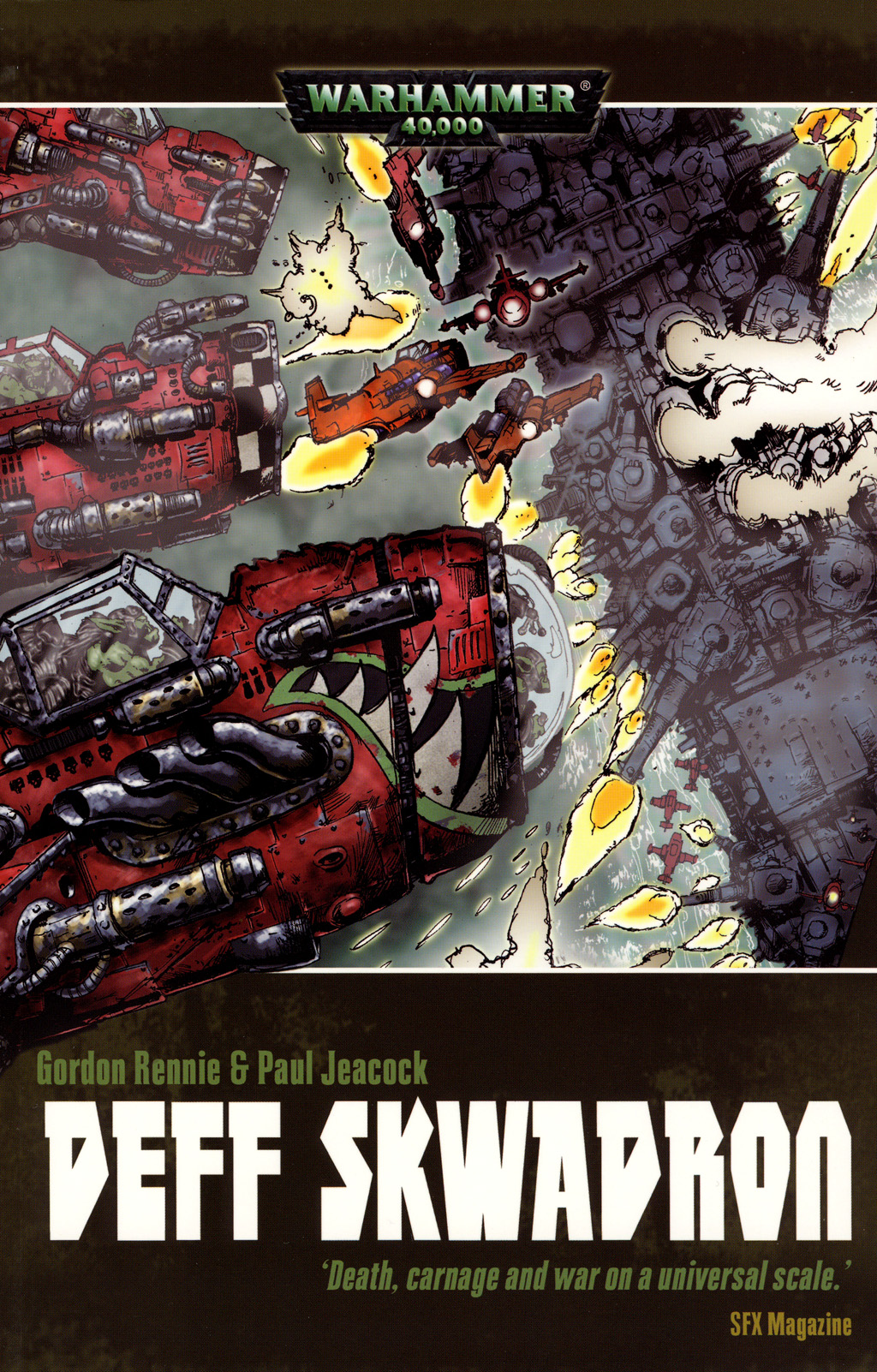
When Marvel Comics got the 40K licence the result was both a solid introduction to the setting for comics readers, and an enjoyable blast of the old megaviolence. Marneus Calgar is a five-issue series about how the chapter master of the Ultramarines first became a space marine, told in flashback as a tech-adept tries to discuss the finer points of budgeting ammunition with him. This is constantly interrupted by battles with entire armies of heretics, pages of impaled bodies and blood. Which is great.
The other 40K comic worth reading leans into comedy even harder. Deff Skwadron is about ork fighter pilots in junker planes with three speeds: stop, fast, and "Waaagh!" They act like The Dam Busters on a raid, if you replaced tactics with pure brutality and a belief that parachutes are for wimps. The dogfights are chaotic, sketchy swirls of ink where engine parts and limbs fly through the air like confetti at a wedding. Deff Skwadron is an older one and can be hard to find in print, but worth it.
Further reading
Warhammer Fantasy books to read after you play Vermintide
Every Warhammer 40,000 game ranked
Major events in the Warhammer 40,000 timeline
Warhammer 40,000: Dawn of War deserves a remaster

Jody's first computer was a Commodore 64, so he remembers having to use a code wheel to play Pool of Radiance. A former music journalist who interviewed everyone from Giorgio Moroder to Trent Reznor, Jody also co-hosted Australia's first radio show about videogames, Zed Games. He's written for Rock Paper Shotgun, The Big Issue, GamesRadar, Zam, Glixel, Five Out of Ten Magazine, and Playboy.com, whose cheques with the bunny logo made for fun conversations at the bank. Jody's first article for PC Gamer was about the audio of Alien Isolation, published in 2015, and since then he's written about why Silent Hill belongs on PC, why Recettear: An Item Shop's Tale is the best fantasy shopkeeper tycoon game, and how weird Lost Ark can get. Jody edited PC Gamer Indie from 2017 to 2018, and he eventually lived up to his promise to play every Warhammer videogame.

